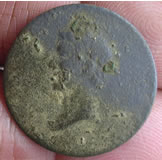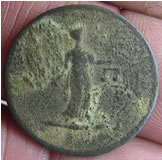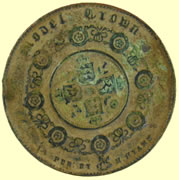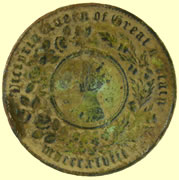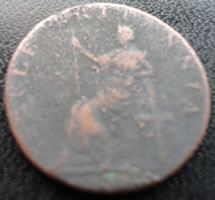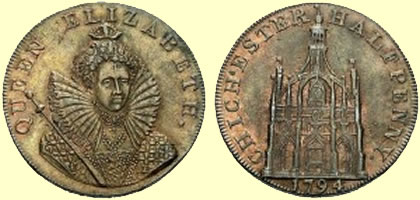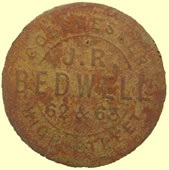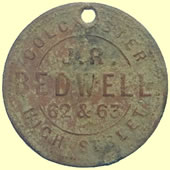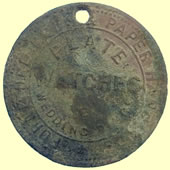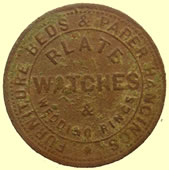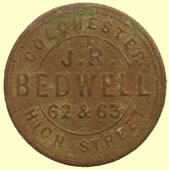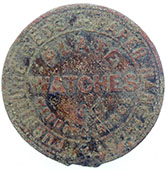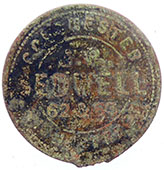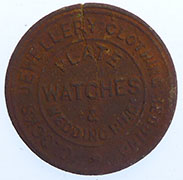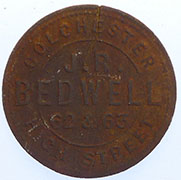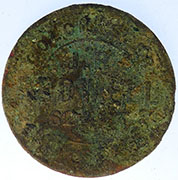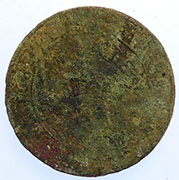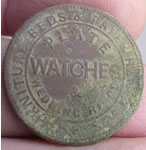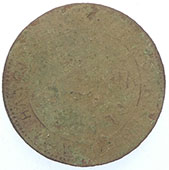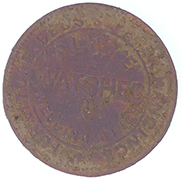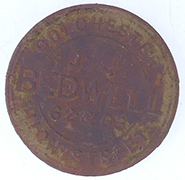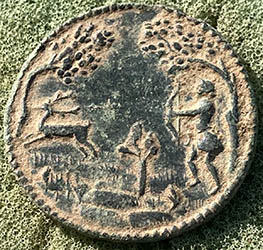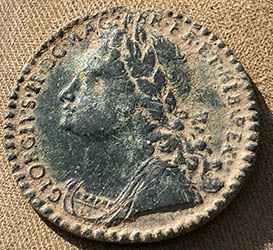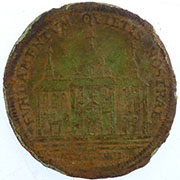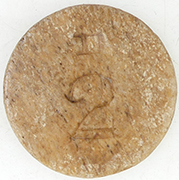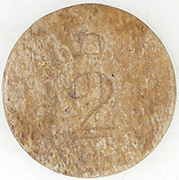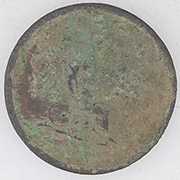

Metal detecting holidays in England with the World's most successful metal detecting club.20 years plus.
Twinned with Midwest Historical Research Society USA.
|
18th/19th/20th
C Tokens |
|||||||||||||||||
|
George III had discontinued the making of copper coins in 1775. He found that they did not circulate. There were two main reasons. The huge number of counterfeit coins in circulation would be spent first — if the holder could get anyone to accept them. The nice, new, shiny penny would be saved — part of “Gresham’s Law”— that states that “Bad money drives the good money out.” The second reason they did not circulate was the counterfeiter — who would gather up the new issues, melt them down, and make 2 or 3 lightweight coppers out of one good one — thus doubling or tripling their money. Obviously, this latter only added to the counterfeits in circulation. A third reason existed. The large cities often had enough — or even an abundance — of coin. That most of it was “bad” coin was a fact, but at least it existed. The small towns out in the “provinces” were often completely without coin. Money has a habit of flowing to the major trade centers, never to return. In 1787, the Parys Mining Company, who mined copper ore — made a decision. They had the copper, and they had access to coining presses. Located in Anglesey, Wales, they were out of the mainstream. Little coin of any kind found its way there. They decided to make their own. Beginning in 1787, they produced Penny and Halfpenny tokens, of the correct weight, nice design, and a edge legend that stated they were payable in Regal funds by them. They were avidly accepted by the workers, and loved by the merchants. The mines themselves were important — there was now a supply of copper in Britain that had not existed before. Planchets for copper coins could now be made locally, at reasonable cost. Manufacturers and artists climbed on the bandwagon — producing designs that were not possible until improvements in coining manufacture due to the industrial revolution made it so. The need for correct weight coin existed — and there were lots of people willing to fill the need. The idea caught on, and by 1795 thousands of issues of tokens could be found. Due to the improvement in the way tokens could be manufactured, the commercial tokens were not only of the correct weight, but could be made with wonderful designs. About 95% of the tokens produced were halfpennies. Penny tokens were generally produced in small number, with a couple of notable exceptions. These tokens not only caught on with the buying public and merchants, but also created a groundswell of collectors determined to get one of each. The collecting craze expanded to the point of many issues being made for collectors only — at a premium cost. It also led some manufacturers to the manufacture of “mules”— pieces made by using the obverse of one token, and the reverse of another — to make additional collector pieces. These were considered to be “spurious” issues — designed to cheat the public and fool collectors. As well, the tokens usually came with a lettered edge. On a correct piece, the edge gives information on the issuer, and where he could be found to refund the token into Regal coin. Varieties were made using incorrect edge markings, giving collectors one more thing to find — and the user often nowhere to go to redeem the pieces. Others saw the advantage of making tokens, as well. Tokens were produced to advertise, espouse political views and social problems. By 1795, the supply of these tokens — real ones, spurious pieces, and medalets — exceeded demand. The quality had deteriorated to the point where something had to be done. The government finally stepped in, and called a halt to the tokens, issuing copper Two penny and One penny coins in 1797. For a ten year period extending from 1787-1797 almost the only “coins” in circulation in Britain were the Provincial, or “Conder” tokens. As they were designed and manufactured by the public, they were not limited by any rules or regulations. Taken as a group, the tokens form a history of a people in a way never seen before — or since!! Through them, we can look in on life in late 18th century Britain. We can see how they lived and thought through their commerce, politics, advertising, and even view their architecture. Avidly collected at the time of their issue, many of these tokens survive in wonderful condition, pieces of history that can be held in the hand. Collectors today find them perhaps even more fascinating than they did years ago. The study of these tokens has proven to be rewarding to many, and the stories behind the tokens and the era are exciting to discover. |
|||||||||||||||||
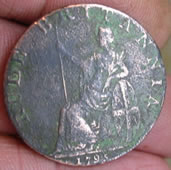 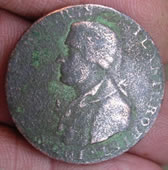 |
|||||||||||||||||
1795 Hampshire Portsmouth Halfpenny Condor Token OBVERSE: IOHN HOWARD F.R.S. PHILANTHROPIST. REVERSE: Britannia seated. RULE BRITANNIA 1795. EDGE: PAYABLE AT THE WAREHOUSE LIVERPOOL X X X |
|||||||||||||||||
 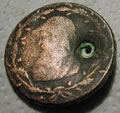 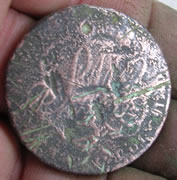 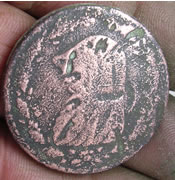 |
|||||||||||||||||
|
Druid's Head on Obverse
of 1788 Anglesey Token Parys Mines Copper
Tokens
|
|||||||||||||||||
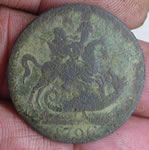 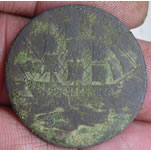 |
|
||||||||||||||||
|
1796 Hampshire Portsea Halfpenny Condor Token OBVERSE:
George and the Dragon. PROMISSORY - HALFPENNY. Ex: 1796. REVERSE:
A Man-of-War sailing. EDGE: PAYABLE AT S.SALMONS I CURTNEY & E
FROST PORTSEA X. |
Roman
medallion or 18thC token ?2.20g, 21.10 |
||||||||||||||||
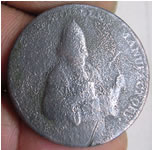 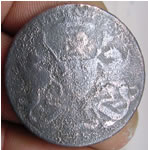 |
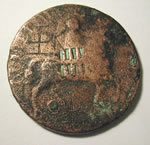 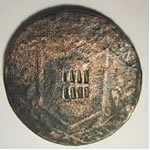 |
||||||||||||||||
|
1789 Trade penny 'The Woolen manufactory' Devonshire
Exeter Halfpenny Condor Token |
Very unusual copper coin, probably an 19th token Inscribed EK |
||||||||||||||||
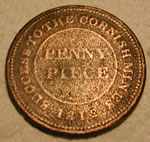 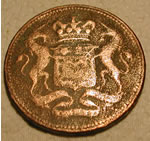 |
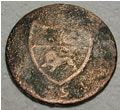 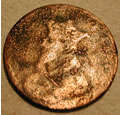 |
||||||||||||||||
|
1818
Huge 'Success to the Cornish Miners' Penny(b) |
1794 Halfpenny of Lancaster (d) OBVERSE: IOHN OF GAUNT DUKE OF LANCASTER.
Star under bust. A flaw gives an impression of a nose-ring. REVERSE:
Shield with lion. LANCASTER HALFPENNY 1792. EDGE: PAYABLE IN LANCASTER
LONDON OR BRISTOL |
||||||||||||||||
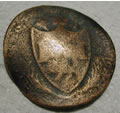 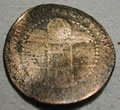 |
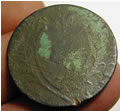 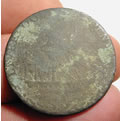 |
||||||||||||||||
|
18thC
Norwich Copper Halfpenny(d) |
1791 Lancashire Liverpool Halfpenny Condor Token OBVERSE: Ship with wreath below. LIVERPOOL
HALFPENNY. Die break through "H". REVERSE: Crest with birds
17 91, EDGE: PAYABLE AT LONDON OR ANGLESEY* |
||||||||||||||||
 |
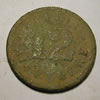 |
  |
|||||||||||||||
|
1794 Suffolk Ipswich Halfpenny Condor Token OBVERSE: An ancient
market cross. IPSWICH CROSS. Ex. 1794. REVERSE: PAYABLE AT Condor'S
DRAPERY WAREHOUSE IPSWICH. In six lines. EDGE: Milled |
19thC
12 shilling Belvadere token |
1792 Norfolk Norwich Halfpenny Condor Token OBVERSE: Shield of arms of the city
of Norwich, castle with lion below. 1 7 9 2 REVERSE: A man working
in a loom with bobbin winder; quite detailed. EDGE: JOHN HARVEY OF
NORWICH .XXXX. |
|||||||||||||||
 |
 |
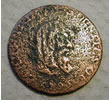 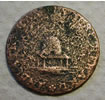 |
|||||||||||||||
|
18thC
token |
Cambridgeshire
County copper Conder farthing token dated 1795 Obverse: Cloaked druid
bust looking right: “CURRENT IN THE COUNTIES OF”, “1795”.
Reverse: Bees swarming around a beehive: “INDUSTRY HAS IT’S
SURE REWARD.”. Diagonally milled edge. 1795 Copper Halfpenny |
||||||||||||||||
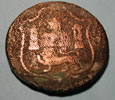 |
 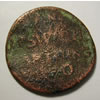 |
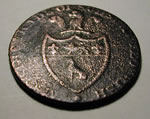 |
|||||||||||||||
|
1792 Norfolk Norwich Halfpenny Condor Token OBVERSE: Shield of arms of the city of Norwich, castle with lion below. 1 7 9 2 REVERSE: A man working in a loom with bobbin winder; quite detailed. EDGE: JOHN HARVEY OF NORWICH .XXXX. |
Ipswich
trade Halfpenny 18thC |
1793 Suffolk Sudbury Halfpenny Condor OBVERSE: Shield of Arms of Sudbury;
dog, lion. MAY THE TRADE OF SUDBURY FLOURISH. REVERSE: PRO BONO PUBLICO
1793. EDGE: PAYABLE AT GOLDSMITH & SONS SUDBURY .XXX. |
|||||||||||||||
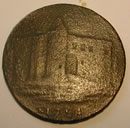 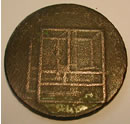 |
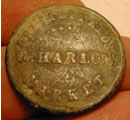 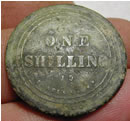 |
||||||||||||||||
|
1794 Colchester half penny(y) OBVERSE: A view of Colchester Castle to the edge of token. Ex: 1794.
REVERSE: A weaving loom. SUCCESS TO THE BAY TRADE. EDGE: PAYABLE AT
CHARLES HEATHS BAY MAKER COLCHESTER .X. |
Harlow
one shilling traders token(x) |
||||||||||||||||
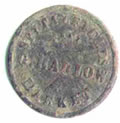 |
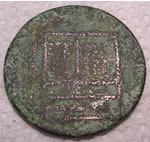 |
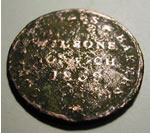 |
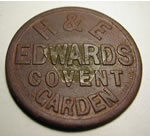 |
||||||||||||||
|
1 shilling
token for Spitalfields market |
1794 Colchester half penny(y) OBVERSE: A view of Colchester Castle to the edge of token. Ex: 1794. REVERSE: A weaving loom. SUCCESS TO THE BAY TRADE. EDGE: PAYABLE AT CHARLES HEATHS BAY MAKER COLCHESTER .X. |
1839
trade token |
19thC
5 shilling Covent Garden market token |
||||||||||||||
 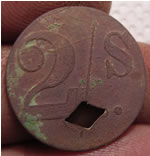 |
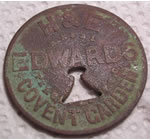 |
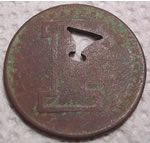 |
|||||||||||||||
|
HE
& Edwards Covent Garden 2 shilling (24 pence) token |
HE
& Edwards Covent Garden 1 shilling (12 pence) token |
||||||||||||||||
 |
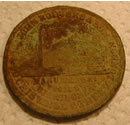 |
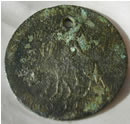 |
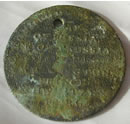 |
||||||||||||||
|
1808
Traders token, John Rogers Chiswell St London |
Napoleon's exile to Elba in 1814 (y) |
||||||||||||||||
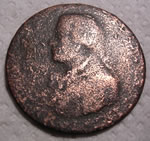 |
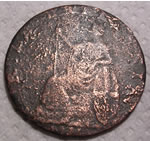 |
 |
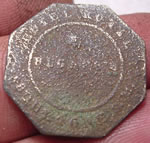 |
||||||||||||||
|
1795 Hampshire Portsmouth Halfpenny Condor Token OBVERSE:
IOHN HOWARD F.R.S. PHILANTHROPIST. REVERSE: Britannia seated. RULE
BRITANNIA 1795. EDGE: PAYABLE AT THE WAREHOUSE LIVERPOOL X X X |
Hotel
Royal Boulogne |
||||||||||||||||
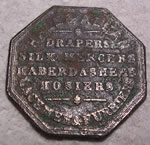 |
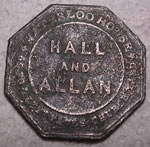 |
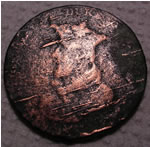 |
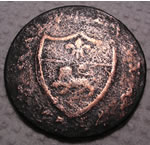 |
||||||||||||||
|
Hall
& Allen Haberdashers |
1794 Halfpenny of Lancaster (d) OBVERSE: IOHN OF GAUNT DUKE OF LANCASTER.
Star under bust. A flaw gives an impression of a nose-ring. REVERSE:
Shield with lion. LANCASTER HALFPENNY 1792. EDGE: PAYABLE IN LANCASTER
LONDON OR BRISTOL |
||||||||||||||||
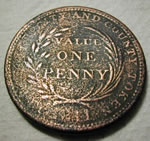 |
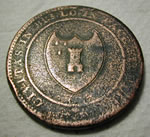 |
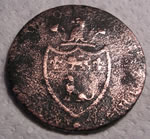 |
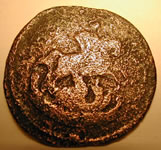 |
||||||||||||||
|
Huge
'County' 1811 Cartwheel penny size token |
1793 Suffolk Sudbury Halfpenny Condor OBVERSE: Shield of Arms of Sudbury; dog, lion. MAY THE TRADE OF SUDBURY FLOURISH. REVERSE: PRO BONO PUBLICO 1793. EDGE: PAYABLE AT GOLDSMITH & SONS SUDBURY .XXX. |
? |
|||||||||||||||
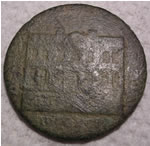 |
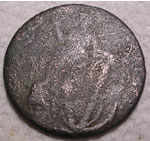 |
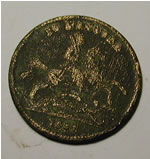 |
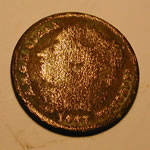 |
||||||||||||||
|
1794 Essex Braintree Halfpenny Condor OBVERSE: A building.
BRAINTREE & BOCKING HALFPENNY Ex: MDCCXCIV. REVERSE: Figure of
Hope. SUCCESS TO TRADE AND COMMERCE. Period midway between legend
and anchor. EDGE: PAYABLE AT W GOLDSMITHS BRAINTREE ESSEX . X X . |
Victorian
"Cumberland Jack" Token 1837
These are a common find in boxes of household junk, old drawers, and accumulations and collections of coins. They are made of brass, probably as a satyrical gaming token. When Queen Victoria acceded to the British throne, she could not assume the Hanoverian throne, as this was restricted to male succession only. Her relative the Duke of Cumberland therefore succeeded in her place. Apparently he was quite unpopular, and this jeton was issued as a humorous comment on his departure from the British Isles. Obverse Crude young head portrait of Queen Victoria, facing left, with her hair in her familiar "bun". This portrait is very similar to that which appears on the young head sovereigns of Victoria, with the legend (inscription). VICTORIA REGINA Reverse |
||||||||||||||||
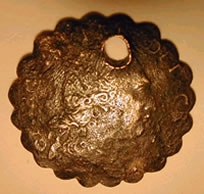 |
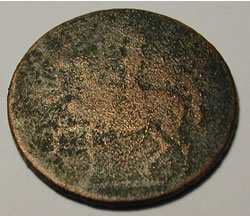 |
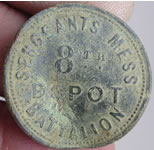 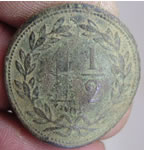 |
|||||||||||||||
|
Gold
guinea token George III |
Coventry COPPER halfpenny token dated 1793 Rev PRO BONO REPUBLICO |
Sergeants
Mess Depot - 8th Depot Battalion one and half pence token |
|||||||||||||||
 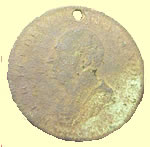 |
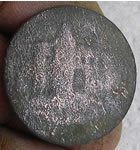 |
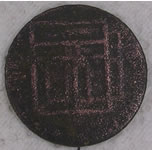 |
|||||||||||||||
|
Soldiers
friend token born 1817 |
18thC Colchester half penny OBVERSE: A view of Colchester Castle
to the edge of token. Ex: 1794. REVERSE: A weaving loom. SUCCESS TO
THE BAY TRADE. EDGE: PAYABLE AT CHARLES HEATHS BAY MAKER COLCHESTER
.X. |
||||||||||||||||
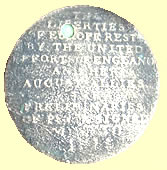 |
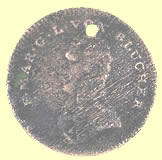 |
  |
|||||||||||||||
|
1815 Gebhard Leberecht von Blücher (1742-1819), Prussian Field Marshal The Battle of Waterloo, 1815 commemorative coin - great find |
Neat find 18thC token - reads obv ' Good wine needs to bush' 'British Tea Warehouse - 4 Bitter Lane' |
||||||||||||||||
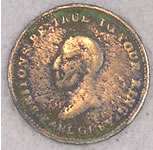 |
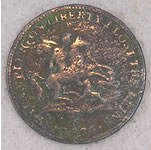 |
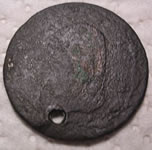 |
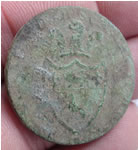 |
||||||||||||||
|
Britain be true to your King Trampling on Liberty lost the King 1830 |
Druid's
Head on Obverse of 1788 Anglesey Token Parys Mines |
1793 Suffolk Sudbury Halfpenny Condor OBVERSE: Shield of Arms of Sudbury; dog, lion. MAY THE TRADE OF SUDBURY FLOURISH. REVERSE: PRO BONO PUBLICO 1793. EDGE: PAYABLE AT GOLDSMITH & SONS SUDBURY .XXX. |
|||||||||||||||
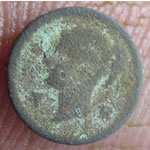 |
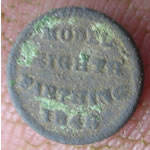 |
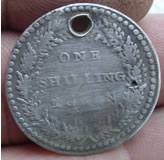 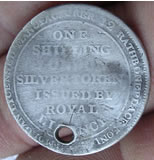 |
|||||||||||||||
|
Smallest
coin/token ever found here 'Model Eight farthing' 1848 ??? 0.29g, 8.4mm |
1 shilling
silver token issued by Royal License12
Rathbone Place London - Morgan Licensed manufacturer |
||||||||||||||||
 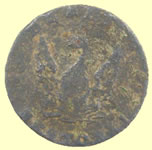 |
 |
 |
|||||||||||||||
| Really neat 18thC token of Dr Fady, 30 Dean Street, Soho - Street in London |
Wellington
Prince of Waterloo token |
10
Shillings (120 pence) Co operative Society of Colchester and East Essex |
|||||||||||||||
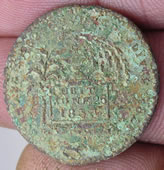 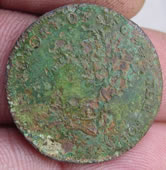 |
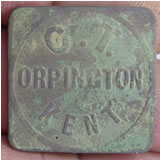 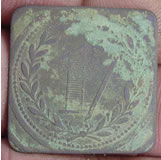 |
||||||||||||||||
|
William
III's death coin - Obit June 25 1836 |
Orpington
Kent token 1 shilling |
||||||||||||||||
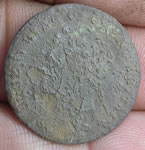 |
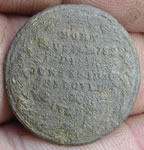 |
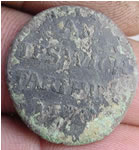 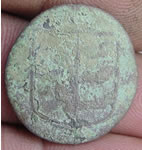 |
|||||||||||||||
|
George
IV 1820-1830 (son of George III) death medallion |
1670
Ipswich copper farthing |
||||||||||||||||
 |
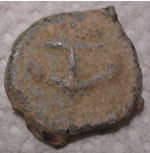 |
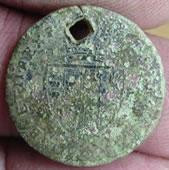 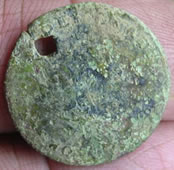 |
|||||||||||||||
|
19thC token - Tooles 'class whiskeys' 'R A1' rev reads 'Leadenhall St London' |
Anchor
design lead trade token 18thC |
18thC George III spade guinea gaming token |
|||||||||||||||
 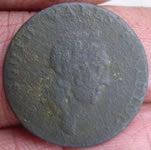 |
 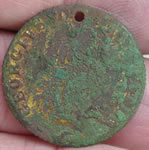 |
||||||||||||||||
South Wales copper Conder farthing token dated 1793. Obverse: Bust to right: "SOUTH WALES FARTHING". Reverse: Prince of Wales crest within shield above sprigs of flowers: "PRO BONO PUBLICO 1793". Plain edge |
1791 George III gold spade half guinea gaming piece |
||||||||||||||||
 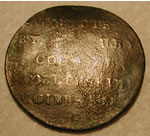 |
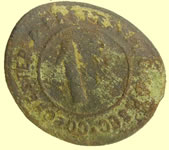  |
||||||||||||||||
1794 Tried for high treason - T.M Tooke Esq Acquited by jury - brilliant find |
20thC Colchester Co operative society 1 pence token |
||||||||||||||||
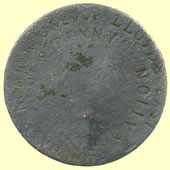 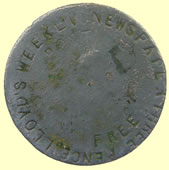 |
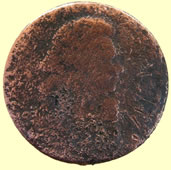 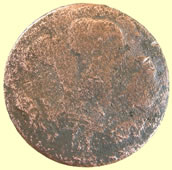 |
||||||||||||||||
'LLoyds weekly newspaper three pence - post free' |
1794 ½ Penny Token
|
||||||||||||||||
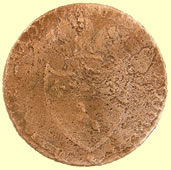 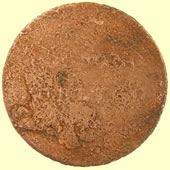 |
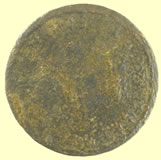 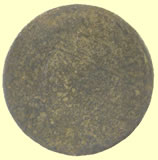 |
||||||||||||||||
1793 Suffolk Sudbury Halfpenny Condor OBVERSE: Shield of Arms of Sudbury; dog, lion. MAY THE TRADE OF SUDBURY FLOURISH. REVERSE: PRO BONO PUBLICO 1793. EDGE: PAYABLE AT GOLDSMITH & SONS SUDBURY .XXX. |
18thC George III go;d guinea gaming token - crown and shield type |
||||||||||||||||
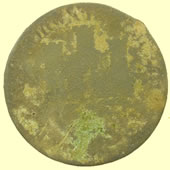 |
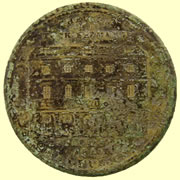 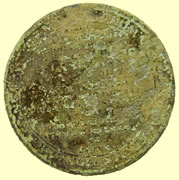 |
||||||||||||||||
ENGLAND, STAFFORD 1803 PENNY TOKEN b OBVERSE: The arms of the borrough of Stafford (a castle and four lions). STAFFORD 1803. REVERSE: A cypher W H and a Staffordshire knot. PENNY. EDGE: PAYABLE BY HORTON AND COMPANY . X X .
|
1820 The old stock exchange - Auctioners, Sales of Estate houses token |
||||||||||||||||
Victorian model crown coin mdcccxlviii (=1848) |
|||||||||||||||||
Joseph Moore was a noted Birmingham medallist (1817 - 1892) who trained under Halliday. He was then in partnership as Allen & Moore (1840 - 1858) and the A&M initials are on many pieces of this period. From 1859 onwards he was trading in his own name with the Moore business eventually being acquired by Fattorini & Sons in 1920. In 1844 Moore produced models (patterns) of a bimetallic penny as a suggestion for a change in the currency of the realm by using lighter and smaller coins than the much heavier and larger "cartwheels" then still in general use. Later, in 1847 / 1848 Moore's firm produced a range of model pieces ranging from 1/16th of a farthing (6mm diameter) through to the bimetallic half pennies and pennies and up to the very ornate crowns, also bimetallic, and quarter sovereigns. The lower denominations were very small and not actual currency in force in the UK either at that time, or before or since. The smaller pieces were probably produced to enhance his own expertise and to market the larger pieces and they have readily become collectable today as "Model Coins". The bimetallic pennies - still seen in abundance today - were so popular with the general public that the Royal Mint had to make an official announcement that they were not legal tender. Moore meant them to be serious models for consideration as currency and most have "Model" on them which probably saved Moore from prosecution under the Counterfeit Laws. |
|||||||||||||||||
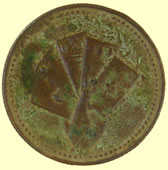 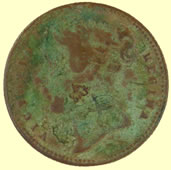 |
 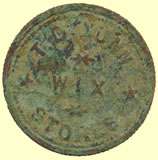 |
||||||||||||||||
Victorian gaming token |
T.D Nunn Wix store half sovereign token (126 pence) |
||||||||||||||||
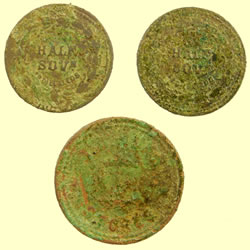 |
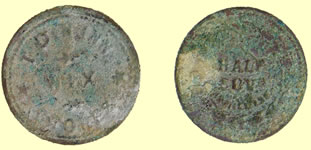 |
||||||||||||||||
Nunns stores Wix tokens - Sovereign and half sovereigns ( 120 & 240 pence) |
T.D Nunn Wix store half sovereign token (126 pence) |
||||||||||||||||
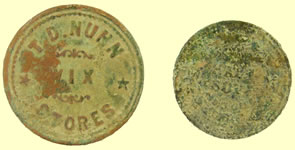 |
  |
||||||||||||||||
T.D Nunn Wix store half sovereign token (126 pence) |
20thC - £1 - T D Nunn Wix store token |
||||||||||||||||
  |
 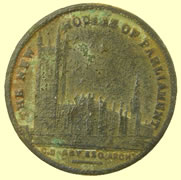 |
||||||||||||||||
1794 Halfpenny of Lancaster OBVERSE: IOHN OF GAUNT DUKE OF LANCASTER. Star under bust. A flaw gives an impression of a nose-ring. REVERSE: Shield with lion. LANCASTER HALFPENNY 1792. EDGE: PAYABLE IN LANCASTER LONDON OR BRISTOL |
Great find 1846 Victorian 'New houses of Parliament' token C.S Barry Esq Arch |
||||||||||||||||
 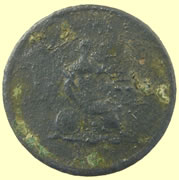 |
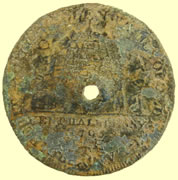 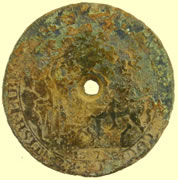 |
||||||||||||||||
18thC condor token |
ENGLAND, KENT---THOMAS HAYCRAFT SHIPBUILDER'S HALFPENNY TOKEN 1795 This Condor token from Kent, England bears the legend "PROSPERITY TO THE WOODEN WALLS OF OLD ENGLAND" Referring to a ship's hull. Thomas Haycraft was an 18th century shipbuilder in Kent. |
||||||||||||||||
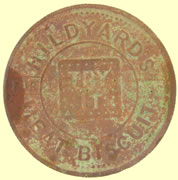 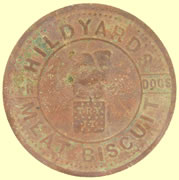 |
  |
||||||||||||||||
20thC token HILDYARDS MEAT BISCUIT FOR DOGS |
18thC George III go;d guinea gaming token - crown and shield type |
||||||||||||||||
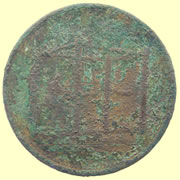 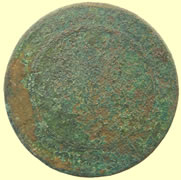 |
 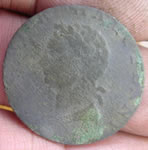 |
||||||||||||||||
Interesting 18thC Conder token - not one I know so have to do some more research Obv - Man using a weaving loom |
1794 Conder token copper half penny - not checked books yet |
||||||||||||||||
Sussex Chichester. Halfpenny 1794. Front face of Queen Elizabeth I with crown and sceptre. QUEEN ELIZABETH. Rev.: Chichester Cross. CHICHESTER HALFPENNY. Edge: PAYABLE AT DALLEYS CHICHESTER |
|||||||||||||||||
Can Dan cleaned up one of his crusty copper coins to reveal a neat Condor token
1794 ½ Penny Token (D & H 26 - Suffolk, Bury)
|
|||||||||||||||||
   |
|||||||||||||||||
| 19thC Nunn Wix Store tokens, £1 and half sovereign | |||||||||||||||||
  |
 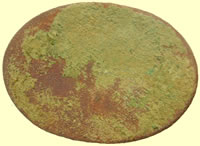 |
||||||||||||||||
| 1815 Condor copper token - not researched yet | 19thC Billingsgate Fish market London trade token - James Howell | ||||||||||||||||
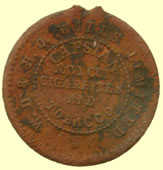 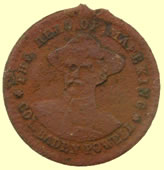 |
|||||||||||||||||
1899 Col Baden Powell hero of Mafeking medallion - issued by W.H.O Wills Capstan Navy cut cigarettes
Lord Robert Baden-Powell of Gilwell (1857-1941) was a decorated soldier, talented artist, actor and free-thinker. Best known during his military career for his spirited defense of the small South African township of Mafeking during the Boer War, he was soon to be propelled to extraordinary fame as the Founder of Scouting. |
|||||||||||||||||
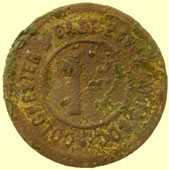 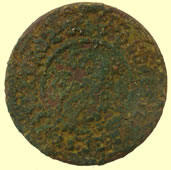 |
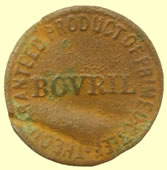 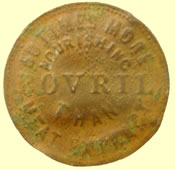 |
||||||||||||||||
| 19thC Colchester Co- op society 1 shilling token | Bovril token - 50 times more meat extract - Nourishing Guaranteed product of prime beef |
||||||||||||||||
  |
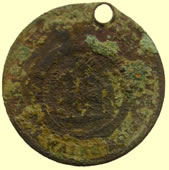 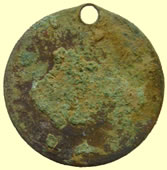 |
||||||||||||||||
1792 NORFOLK AND NORWICH HALFPENNY, PRO BONO PUBLICO MAY NORWICH FLOURISH (dot) Edge: PAYABLE AT N. BOLINGBROKES HABERDASHER &c NORWICH X as D&H 14 except no dash (-) in HABERDASHER |
19thC Prince of Wales medallion | ||||||||||||||||
 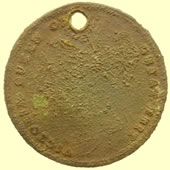 |
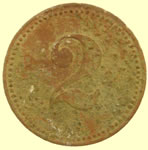 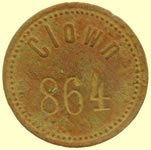 |
||||||||||||||||
| 1839 Victoria Queen of Great Britain medallion | 20thC arcade token - 2D (2 old pence) | ||||||||||||||||
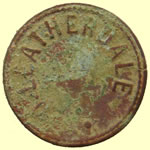 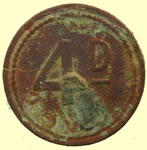 |
  |
||||||||||||||||
| 20th 4D - 4 old pence trade token | George III gold half guinea gaming token | ||||||||||||||||
  |
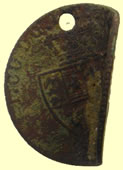 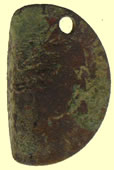 |
||||||||||||||||
20thC Miller 1 shilling traders token 48 Opencastle Mitcham |
George III half guinea gaming token | ||||||||||||||||
  |
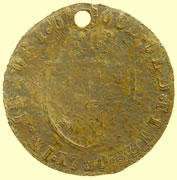 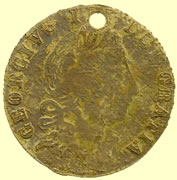 |
||||||||||||||||
| Druid's Head on Obverse of 1788 Anglesey Token Parys Mines | 1790 George III gilded full guinea gaming token 'For the good old times' |
||||||||||||||||
  |
  |
||||||||||||||||
1794 Halfpenny of Lancaster (d) OBVERSE: IOHN OF GAUNT DUKE OF LANCASTER. Star under bust. A flaw gives an impression of a nose-ring. REVERSE: Shield with lion. LANCASTER HALFPENNY 1792. EDGE: PAYABLE IN LANCASTER LONDON OR BRISTOL |
Unknown 18thC Conder token | ||||||||||||||||
  |
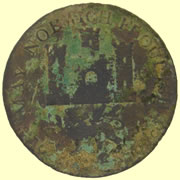  |
||||||||||||||||
1793 Suffolk Sudbury Halfpenny Condor OBVERSE: Shield of Arms of Sudbury; dog, lion. MAY THE TRADE OF SUDBURY FLOURISH. REVERSE: PRO BONO PUBLICO 1793. EDGE: PAYABLE AT GOLDSMITH & SONS SUDBURY .XXX. |
1792 NORFOLK AND NORWICH HALFPENNY, PRO BONO PUBLICO MAY NORWICH FLOURISH (dot) Edge: PAYABLE AT N. BOLINGBROKES HABERDASHER &c NORWICH X as D&H 14 except no dash (-) in HABERDASHER | ||||||||||||||||
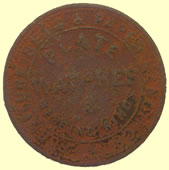 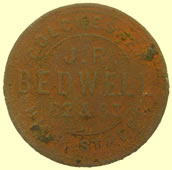 |
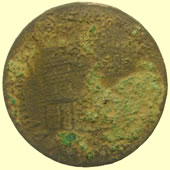 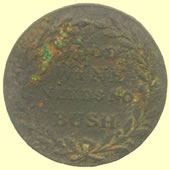 |
||||||||||||||||
19thC Colchester 'Bedwell' token - Hill Street |
Neat find 18thC token - reads obv ' Good wine needs no bush' 'British Tea Warehouse - 4 Bitter Lane' Proverb - Something good does not need to be advertised |
||||||||||||||||
  |
  |
||||||||||||||||
| 20thC Colchester and East Essex Co Op 1 pence token | 1792 Trade copper Condor Token John Wilkinson Iron Master | ||||||||||||||||
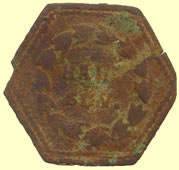 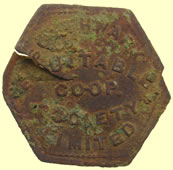 |
  |
||||||||||||||||
| 19thC Southwark Co -op Half Sovereign (10 shillings) token | 1792 Norfolk Norwich Halfpenny Condor Token OBVERSE: The arms of Norwich; castle and lion. REVERSE: A plough and shuttle. SUCCESS TO THE PLOUGH AND SHUTTLE. EDGE: Plain. |
||||||||||||||||
Druid's Head on Obverse of 1788 Anglesey Token Parys Mines Copper Tokens
|
|||||||||||||||||
|
|||||||||||||||||
1880-1890 John Robert Bedwell token Colchster EssexObverseLegend on five lines, the top and bottom curved. Lettering: ReverseLegend on five lines, the top three and bottom one curved. Lettering: |
|||||||||||||||||
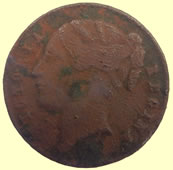  |
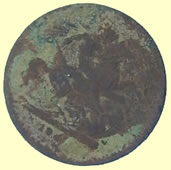 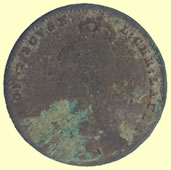 |
||||||||||||||||
Victorian "Cumberland Jack" Token 1837
These are a common find in boxes of household junk, old drawers, and accumulations and collections of coins. They are made of brass, probably as a satyrical gaming token. When Queen Victoria acceded to the British throne, she could not assume the Hanoverian throne, as this was restricted to male succession only. Her relative the Duke of Cumberland therefore succeeded in her place. Apparently he was quite unpopular, and this jeton was issued as a humorous comment on his departure from the British Isles. Obverse Crude young head portrait of Queen Victoria, facing left, with her hair in her familiar "bun". This portrait is very similar to that which appears on the young head sovereigns of Victoria, with the legend (inscription). VICTORIA REGINA Reverse |
Victorian copper token | ||||||||||||||||
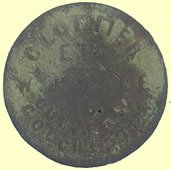 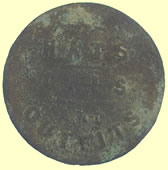 |
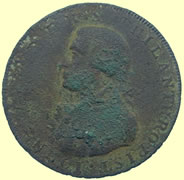  |
||||||||||||||||
| 20thC Colchester outfitters token | 1795 Hampshire Portsmouth Halfpenny Condor Token OBVERSE: IOHN HOWARD F.R.S. PHILANTHROPIST. REVERSE: Britannia seated. RULE BRITANNIA 1795. EDGE: PAYABLE AT THE WAREHOUSE LIVERPOOL X X X |
||||||||||||||||
  |
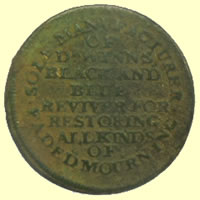 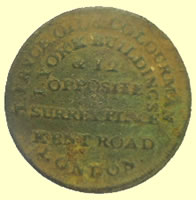 |
||||||||||||||||
18thC Huge token/medallion EASTERN DISTRICT AND ENGLAND BRANCH E + C |
19thC medical token Obv - Dr Wynns Black and Blue reviver for restoring all kinds of Sole manufacturer - Faded Mourning Rev - 1 York building opposite Surrey Plane Kent Road London |
||||||||||||||||
  |
  |
||||||||||||||||
| 1792 NORFOLK AND NORWICH HALFPENNY | 1795 Condor token This 1795 British copper halfpenny token was designed by Thomas Wyon of the Peter Kempson and Sons mint in Birmingham, England, for the London firm of Clark and Harris, dealers in stoves and fireplace grates. The obverse displays a bust of Washington facing right with the legend "G. WASHINGTON. THE FIRM FRIEND TO PEACE & HUMANITY." The reverse displays a large grate (a screen put in front of a fireplace) with LONDON and 1795 below. The reverse legend reads "PAYABLE BY CLARK & HARRIS 13. WORMWOOD St. BISHOPSGATE ." The "Grate" token is found in both the large button and the rarer small button varieties; referring to the relative size of the three buttons on Washington's coat. Most examples have a diagonally reeded edge but about 30 of the large button variety exist with the lettered edge: "PAYABLE AT LONDON LIVERPOOL OR BRISTOL." |
||||||||||||||||
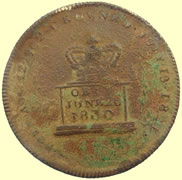 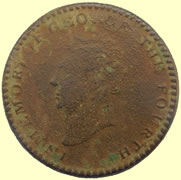 |
  |
||||||||||||||||
1830 George IV memorial medallion June 26th 1830 |
19thC Ratton and Sons Harrogate token 'Your emporium' |
||||||||||||||||
  |
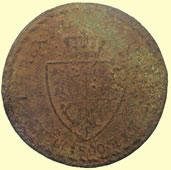 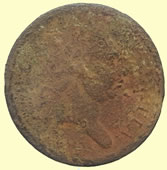 |
||||||||||||||||
1794 Colchester half penny(y) OBVERSE: A view of Colchester Castle to the edge of token. Ex: 1794. REVERSE: A weaving loom. SUCCESS TO THE BAY TRADE. EDGE: PAYABLE AT CHARLES HEATHS BAY MAKER COLCHESTER .X. |
18thC George III spade guinea gaming token | ||||||||||||||||
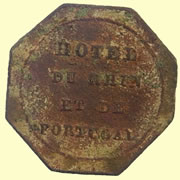 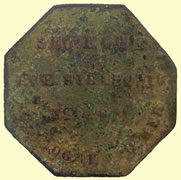 |
  |
||||||||||||||||
20thC hotel token Hotel RHIN DU ET DE PORTUGAL |
19thC W.Williams of Rotherhithe London 1/2 pound token | ||||||||||||||||
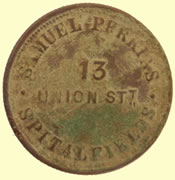 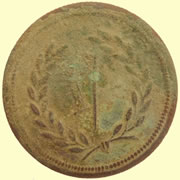 |
  |
||||||||||||||||
Victorian copper token - Samuel Perrins 13 Union St, Spitalfields market, London |
19thC advertising token Malborough & Waterloo House, Harwich Essex. Tea, Coffee,Peter,Nutmeg.Ginger,Clover, Mustard,Coco,Tapioca. Raw & Loaf Sugars The Trade supplied Wholesale Prices for Cash Only |
||||||||||||||||
  |
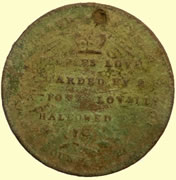  |
||||||||||||||||
| Victoria token | King William IV coronation medallion Sept 8th 1831 Obv Proclaimed June 28th 1830, Crowned Sept 8th 1831 Rev Crowned with their Peoples love guarded by a nations loyalty hallowed by their countrys bless |
||||||||||||||||
  |
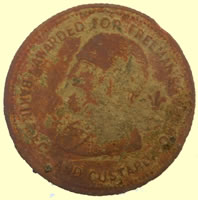 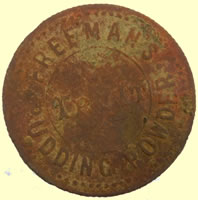 |
||||||||||||||||
| Victorian 8 pence trade token | 1883 Freeman's pudding powder Try it ! token Freeman's Baking Powder advertising token Prince of Wales Award. Obverse: Portrait of The Prince of Wales [later King Edward VII] |
||||||||||||||||
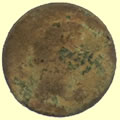 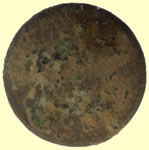 |
  |
||||||||||||||||
| One of the smallest coin/tokens you can find . 1848 Victoria 'Model Eight farthing' 0.29g, 8.4mm | 19thC Insurance Token Obv Mutual Rev Wagoon. Horses |
||||||||||||||||
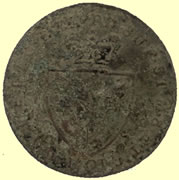 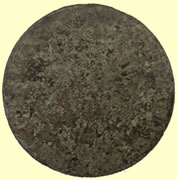 |
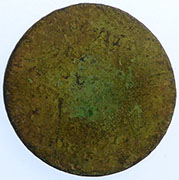 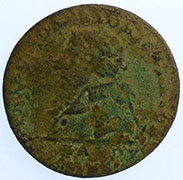 |
||||||||||||||||
| George III gold guinea gaming token | 1794 Condor token - Middlesex half penny ObverseBust of Hardy to left, name and date below, legend around Lettering: ReverseLegend across six horizontal lines Lettering: |
||||||||||||||||
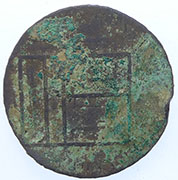 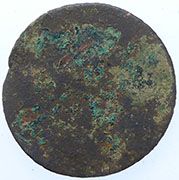 |
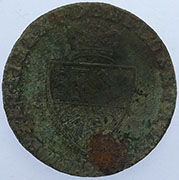 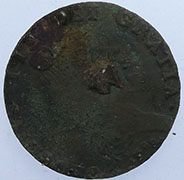 |
||||||||||||||||
| 1792 NORWICH NORFOLK England Tradesman's or CONDOR Token | 1791 George III gold spade half guinea gaming piece | ||||||||||||||||
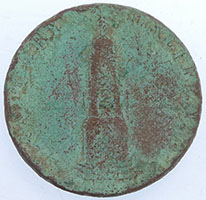 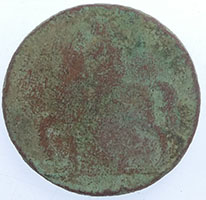 |
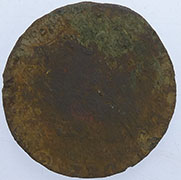 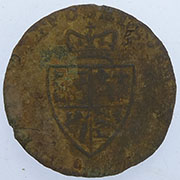 |
||||||||||||||||
| 18th C Condor token - researching it | 18thC George III gold half guinea gaming token | ||||||||||||||||
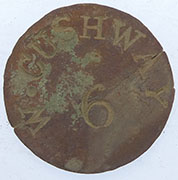 |
 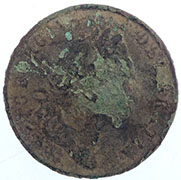 |
||||||||||||||||
| 'W.Gushway' token | 1797 George III gold guinea gaming token | ||||||||||||||||
  |
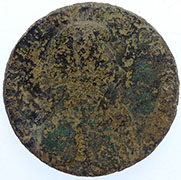 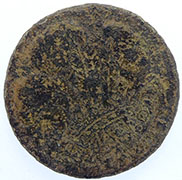 |
||||||||||||||||
| 1788 George III gilded copper gold guinea gaming token | 1794 Middlesex Prince of Wales Condor halfpenny token Prince of Wales feathers |
||||||||||||||||
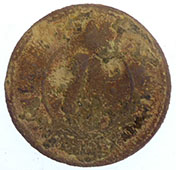 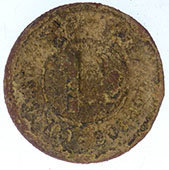 |
 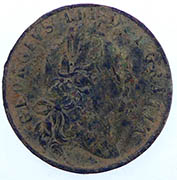 |
||||||||||||||||
20thC one pence copper trade token 1D |
1797 George III gold guinea gaming token | ||||||||||||||||
Medal Great Britain George II Indian Peace 1757 Obverse with laureate armored bust left, GEORGIVS II DG MAG BR FR ET HIB REX around. Reverse with Native American hunting scene in forest, deer running with archer's arrow in mid-air. This could be an amazing discovery 'Wow! Search under peace medal. It is one of the earliest made for Indian trade in America.' Dan |
|||||||||||||||||
 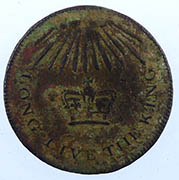 |
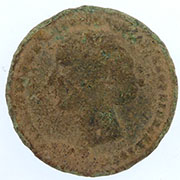  |
||||||||||||||||
| 1759-1809 George III 50th year of reign medallion | 1840's Victoria and Prince Albert medallion ? | ||||||||||||||||
Circa 1710. Queen Anne. Rev. FVNDAMENTVM QVIETIS NOSTRAE. ECCLES. ANGL. Brass 26mm. by Lazarus G. Lauffer Nuremburg. FVNDAMENTVM QVIETIS NOSTRAE. ECCLES. ANGL means The Church of England is the basis (or foundation) of our Peace. These were early propaganda tokens/jetons stressing that the protestant church was the way to maintain peace in Great Britain. Both Queen Anne & King George faced threats from legitimate claimants to the throne. These were Catholic and supported by french funds and sometimes french troops and had tremendous support in Scotland and Ireland plus some support from catholic families even in England. |
|||||||||||||||||
  |
  |
||||||||||||||||
| Huge Victorian One pence copper token | First Condor half penny I have seen 1795 Newmarket half penny Obv Druid head -'Current in the counties' Rev Beehive - 'Industry has its sure reward' |
||||||||||||||||
  |
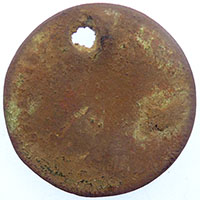 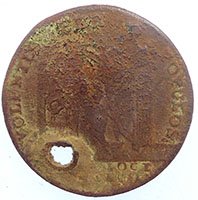 |
||||||||||||||||
1793 Suffolk Sudbury Halfpenny Condor OBVERSE: Shield of Arms of Sudbury; dog, lion. MAY THE TRADE OF SUDBURY FLOURISH. REVERSE: PRO BONO PUBLICO 1793. EDGE: PAYABLE AT GOLDSMITH & SONS SUDBURY .XXX. |
George 1st 1727 Coronation medallion Coronation of George II 1727 J. Croker, the official coronation issue, Obverse: Bust left Laureate, armoured and draped, GEORGIVS. II. D.G. MAG. BR. FR. ET. HIB. REX. Reverse the King enthroned right, is crowned by Britannia VOLENTES. PER. POPULOS Exergue: CORON. XI. OCTOB. MDCCXXVII, |
||||||||||||||||
  |
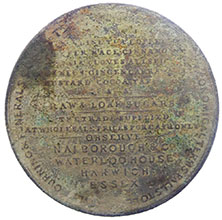 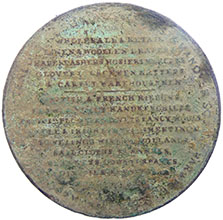 |
||||||||||||||||
| 19thC Colchester & East Essex Co-operative half penny token | 19th C Advertising token Naiborough & Co, Waterloo Hse, Harwich Haberdashers |
||||||||||||||||
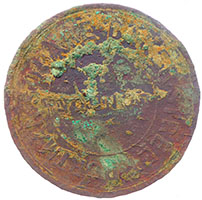 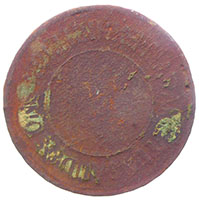 |
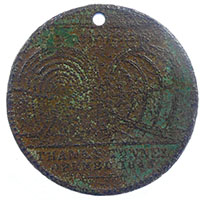 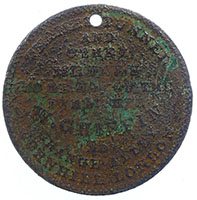 |
||||||||||||||||
| 19thC London copper trade token | 1843 Thames Tunnel medallion The tunnel was originally designed for horse-drawn carriages, but was mainly used by pedestrians and became a tourist attraction. In 1869 it was converted into a railway tunnel |
||||||||||||||||
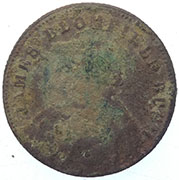 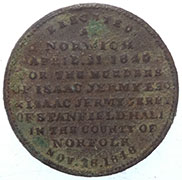 |
  |
||||||||||||||||
James Blomfield Rush for murders at Stanfield Hall - Nov 16th 1848 Who was executed on Castle Hill on Saturday April 1849 |
1820-1821 Token - Caroline of Brunswick, Queen Consort of England ObverseHead of Queen Caroline with a feather headdress, facing to left. Legend around. Script: Latin Lettering: CAROLINE.QUEEN CONSORT OF ENGLAND. ReverseThe royal crown irradiated in the center with the legend around. Script: Latin Lettering: BORN MAY 17.1768. MARRIED APPRIL 8.1795. |
||||||||||||||||
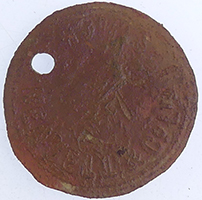 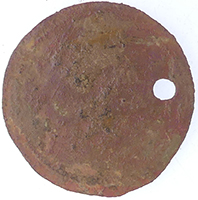 |
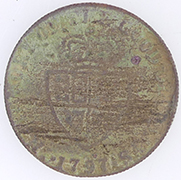 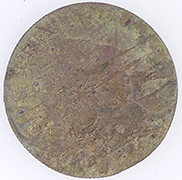 |
||||||||||||||||
| Victorian - Newell & Co Ipswich token | 1797 guinea gaming token | ||||||||||||||||
  |
  |
||||||||||||||||
| Victrorian copper token - Sanders Grocers of Colchester | Victorian TOOLE'S BLEND FINEST MALT SCOTCH WHISKEY LEADENHALL ST. LONDON F.TOOLE CO. TOKEN ND London, Leadenhall St, F Toole & Co, Wine & Spirits, Unofficial Farthing, W.2945
O: CRAME OF IRISH / WHISKEY / “KING O’TOOLE” / F.TOOLE / & CO. / 97 LEADENHALL ST LONDON. This token is listed in Withers, The Token Book. 2 as W.2945. |
||||||||||||||||
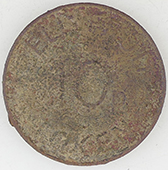 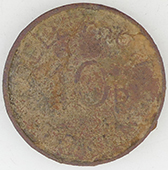 |
  |
||||||||||||||||
| 20thC Bell Fruit 10 pence gambling token | 1883 Hawaii Kingdom Kalākaua I Historical silver Token The "1883 Hawaii Kingdom Kalākaua I Historical silver Token" refers to a series of Kalākaua coinage, specifically silver coins (like dollars, half dollars, quarters, and dimes) issued in 1883 under King David Kalākaua I of the Hawaiian Kingdom to promote national pride. These coins feature a portrait of the King on the obverse and the Hawaiian coat of arms on the reverse, were struck at the U.S. Mint in San Francisco, and financed by Claus Spreckels |
||||||||||||||||
  |
  |
||||||||||||||||
1821 Royal mint weight - half gold sovereign - penny weights and grains Lion stg, left on crown 2.13 |
Victorian ALLISON & Co- Trade token | ||||||||||||||||
  |
  |
||||||||||||||||
Victorian Thompson advertising token Tea, Coffee and Spices sold genuine as imported An Oz of the best mixed tea London |
Great Britain John Wilkinson Iron Master Copper Half Penny Token1788 | ||||||||||||||||
A Post Medieval biface bone token, dating to the 19th century. The token is circular with 2d (Two pence) carved into each side. Obverse: 2d Reverse:
PAS :LON-CD7E3C |
|||||||||||||||||
Columbia token The 1820-1830 'Columbia' Farthing is a British-made copper token, likely minted in Birmingham, that features "COLUMBIA" on the obverse and a figure of Britannia on the reverse. It is an enigmatic piece, possibly produced with the intention of being exported to the new country of Colombia, but was not. It was never used there and remains primarily found in Britain, likely rejected because Colombia did not use such base metal coinage at the time |
|||||||||||||||||
 |
|||||||||||||||||
